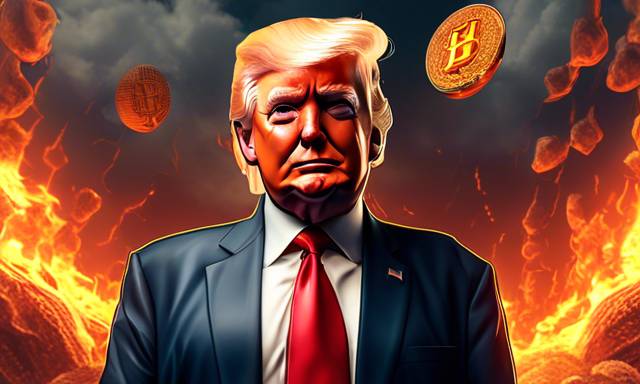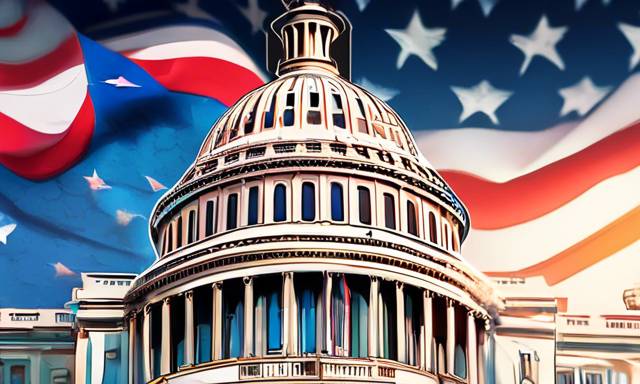Insight into Trump’s Views on Crypto Regulation 🚀
As a crypto enthusiast, you may find it intriguing to explore the recent statements made by former President Donald Trump regarding the future of cryptocurrency regulation in the U.S. during the launch of his World Liberty Financial crypto platform. He shared his belief that if he does not secure a second term this year, those currently under scrutiny by the Securities and Exchange Commission (SEC) could face significant challenges. Trump’s remarks resonated as he highlighted the SEC’s stringent stance on crypto regulations and speculated on potential shifts in regulatory approaches based on electoral outcomes.
Trump’s Stance on SEC Investigations 📉
During his launch event, Trump addressed the notion that cryptocurrency developers under SEC investigation “will be living in hell” should he lose the upcoming election. He remarked, “If we don’t win the election, those individuals currently being investigated and those who are currently unbothered within the cryptocurrency landscape will face drastic changes.” His comments reflect a strong viewpoint on the repercussions of a potential Biden administration victory, particularly for those operating in the cryptocurrency sector.
Hostility in Regulatory Climate ⚖️
The former president articulated his discontent with what he described as a profoundly antagonistic regulatory environment fostered by the SEC, particularly under the leadership of Chair Gary Gensler. Trump’s comments came at a launch event organized by Rug Radio, which is associated with *Decrypt*, where he elaborated on the SEC’s targeted approach toward various cryptocurrency exchanges such as Coinbase, Binance, and Kraken, as well as its legal warnings directed at NFT marketplace OpenSea. This regulatory scrutiny has created unease among crypto market participants.
Unexpected Changes in SEC Decisions 🔄
In recent months, the crypto landscape has experienced notable surprises. The approval of Ethereum exchange-traded funds (ETFs), which seemed unlikely early in the year, became a reality in May. The SEC’s initial hesitance following the approval of Bitcoin ETFs in January was replaced by a surprising endorsement, allowing Ethereum ETFs to commence trading in July. These developments have raised questions about the overall regulatory environment and the factors influencing the SEC’s decisions.
Influence of Political Climate on Crypto Regulation 🌍
Speculations arose regarding whether Trump’s vocal support for cryptocurrency and his pledge to implement more favorable regulations influenced the recent shift in the Biden administration’s regulatory approach toward digital assets. Trump expressed a belief that since his public engagement with the crypto industry, the treatment of crypto participants by authorities has seen an improvement, suggesting this change may be politically motivated: “Perhaps they view it as a matter of garnering votes.” This statement highlights the intricate relationship between politics and the evolving regulatory landscape.
Democratic Opponent’s Stance on Crypto 💼
In contrast, Trump’s Democratic opponent, Vice President Kamala Harris, has yet to outline a detailed framework for approaching cryptocurrency regulation. Notably, some influential figures within the crypto sector, including billionaire investor Mark Cuban, have reported that Harris’s team has reached out to gauge insights on the industry. This indicates a recognition of the burgeoning importance of the cryptocurrency market within the broader economic landscape.
Hot Take 🔥
As a reader with an interest in cryptocurrency, the evolving dialogue surrounding regulation is crucial to your understanding of future market dynamics. Trump’s candid remarks underscore the potential impact of the electoral results on the crypto sector and the regulatory environment as a whole. The differing approaches from political figures highlight the complexities and uncertainties that currently define cryptocurrency regulation in the United States. Keeping an eye on these developments will provide valuable insights into how the regulatory framework may continue to evolve based on political climates moving forward.





 By
By
 By
By
 By
By

